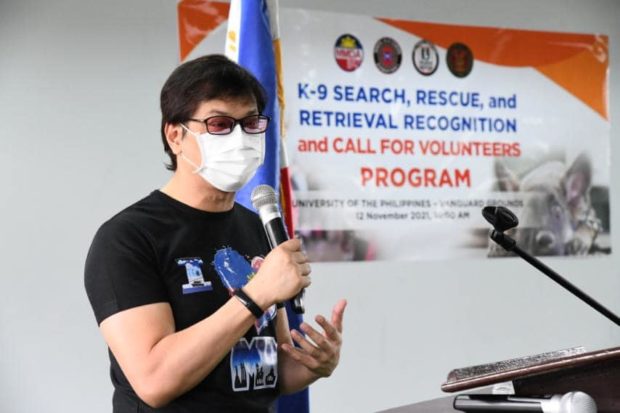MANILA, Philippines — The administration of President Ferdinand Marcos Jr. would continue his predecessor’s controversial drug war, according to Interior Secretary Benhur Abalos, although he refused to give a direct answer when asked if it would be just as bloody.
“The war against drugs will be as intensive as before on the basis of my oath as a public official in accordance with the Constitution,” Abalos said in his first press conference as head of the Department of the Interior and Local Government on Monday.
To the question of whether the campaign would be as bloody as the one waged by former President Rodrigo Duterte, he merely said: “The drug war will be pursued relentlessly in accordance with the oaths I would be taking and on the basis of the Constitution.”
About three people were killed daily by authorities in legitimate antidrug operations during Duterte’s term, based on the latest government-released figures.
From July 1, 2016, to May 31 this year, or a period spanning 2,160 days, a total of 6,252 persons were killed in such operations.
Much higher figure
Local and international human rights groups, however, reported a much higher figure — as much as 30,000 by 2019 — if drug suspects killed by unidentified gunmen and vigilantes were included in the tally.
Abalos said he would push for fewer drug case dismissals and give more support to antinarcotics police officers.
According to him, a major problem he saw in the drug campaign was the dismissal of drug cases at the level of prosecutors and courts due to “technicalities.”
The Department of Justice (DOJ) reported that from 2016 to 2017, close to 60 percent of drug cases were either dismissed or resulted in the acquittal of respondents because of weak case buildups, or over the police’s failure to comply with rules on the custody and disposition of seized drugs.
Lack of witnesses
Under Section 21 of the Comprehensive and Dangerous Drugs Act of 2002, the inventory of the seized drugs should be done in the presence of a representative from the media or the DOJ, and any elected public official, usually from the barangay.
“What happens is the cases are dismissed due to the lack of witnesses,” Abalos said.
To remedy this problem, he said he would ask local government officials to always assign a person to testify in such cases to meet the requirements set by the law.
RELATED STORIES
Tulfo says ‘drug war’ must no longer be ‘bloody’; bats for more rehab centers
Bongbong Marcos to continue drug war ‘within framework of law, human rights’ — Swedish envoy
DOJ urged to probe falsified death certificates of some drug war victims
